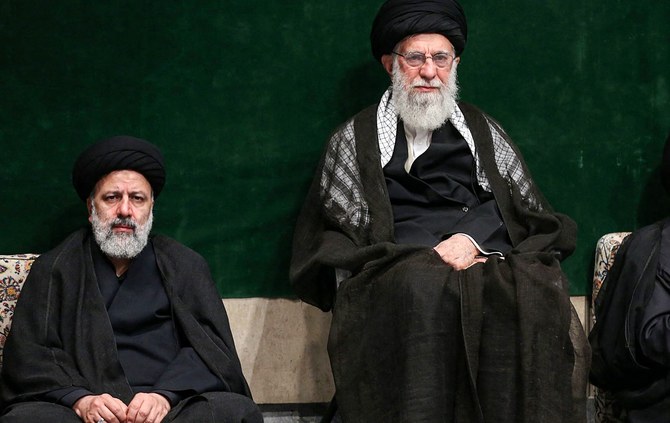
- ARAB NEWS
- 09 Jul 2025

When it comes to the Iranian regime and its role in crimes against humanity, there are many incidents that remain unresolved after the passage of many years or even decades.
Some of them, like the bombing of civilian infrastructure in Syria, are likely attributable to the Iranian regime and its proxy militia and terror groups. Human rights lawyers are currently attempting to bring Iranian and Syrian military officials before the International Criminal Court to be held accountable for war crimes.
Gissou Nia, a lawyer who is on the legal team, said: “Up until now, little public attention has been paid to the legal responsibility of the Islamic Republic of Iran in the decade-long Syrian conflict, despite the significant intervention of Iranian officials in Syria and perpetration of atrocities. The Islamic Republic of Iran has provided a vast range of military and non-military support to achieve its objectives, chiefly to prevent the fall of disgraced Syrian President Bashar Assad at any cost. Unfortunately, that goal has been fought at the cost of hundreds of thousands of killed, injured and displaced Syrian civilians.”
During the Syrian conflict, Iran sought the help of its Shiite proxies, primarily Hezbollah, in support of Assad’s forces. When the number of Syrian opposition groups increased, Tehran hired Shiite fighters from other countries, including Pakistan and Afghanistan.
In addition, the Iranian regime is yet to be held accountable for another major crime against humanity. In 1988, Iran was the site of what many human rights experts and scholars of international law have labeled as genocide and the single worst crime against humanity to take place in the second half of the 20th century.
Between July and September of that year, about 30,000 political prisoners were executed following sham trials that often lasted less than five minutes. The “death commissions” responsible for those trials were empaneled in the wake of then-Supreme Leader Ayatollah Khomeini issuing a fatwa that targeted opposition activists from the principal Iranian opposition movement, the National Council of Resistance of Iran, which declared them all guilty of the capital crime of “enmity against God.”
In comparison to other similar atrocities, the 1988 massacre of Iranian prisoners took place relatively far from the public eye. But even in the absence of social media’s influence on the speed with which such information is disseminated, it was revealed to Western policymakers almost immediately. As a result, the sharp rise in executions was referenced in a UN General Assembly resolution on Iran’s human rights situation that same year. Unfortunately, however, none of the relevant UN bodies followed up on that resolution — a fact that was acknowledged by UN human rights experts in September 2020, when they sent a letter to the Iranian authorities calling for transparency about the massacre and its still-unfolding legacy.
The letter detailed the “devastating impact” that inaction had upon the massacre’s survivors and the families of victims, as well as on the overall situation of human rights in Iran. By extension, the letter served as a general warning about the danger of allowing crimes against humanity to go unpunished, especially after they have been publicly acknowledged and condemned on the international stage.
If such acts are not confronted and punished at an early stage, the underlying evil is sure to fester and spread.
Dr. Majid Rafizadeh
Although one former Iranian prison official is currently facing trial in Sweden under universal jurisdiction laws for his part in the 1988 massacre, no one has so far been held accountable. In Iran, the higher authorities have been systematically rewarded for their involvement, with the most egregious example coming just last year, when Ebrahim Raisi was installed as president of the Islamic Republic. In 1988, he was one of four officials who served on the Tehran death commission, whereupon he developed a reputation for particular dedication to Khomeini’s demand that clerical authorities “annihilate the enemies of Islam immediately.”
If that were not bad enough, Raisi was in charge of Iran’s judiciary in 2019, when the regime’s crackdown as a result of a nationwide uprising killed at least 1,500 people and landed thousands of others in jail. The incident reinforced his reputation as the “butcher of Tehran” and illustrated an essential fact about the long-term impact of crimes against humanity: If such acts are not confronted and punished at an early stage, the underlying evil is sure to fester and spread, becoming embedded in the system that allowed the crimes to occur in the first place.
The violent repression of dissent and the export of “revolutionary” principles of Islamic extremism are core features of the clerical regime’s strategy for maintaining power. But it is never too late to act. It is high time to end the impunity that the ruling ayatollahs have enjoyed for three decades and hold them accountable for their crimes against humanity.